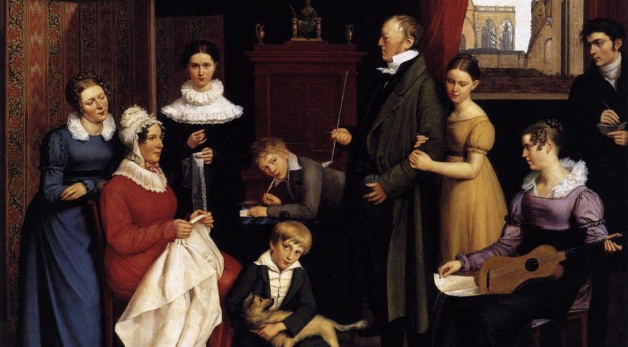There’s a certain security that goes with being in control. It gives us a steady sense of satisfaction, the daily routine of generating a checklist, progressing through it, and striking off the last item just before our head hits the pillow. I came, I saw, I conquered—a good day.
And yet, by deliberately and consistently managing our environment, we begin to expect our days to unfold exactly as planned. We become like demi-gods, laying out and executing our provident plans. We assume the place of Mickey Mouse in Fantasia, conjuring up a reality entirely of our own choosing.
What I mean to suggest is that this tendency, if carried to its logical conclusion, can lead to a kind of moral and spiritual suffocation.
Of course, I’m not discouraging the prudential ordering of one’s affairs. It’s good to structure one’s life according to right reason with respect to things to be done. It’s a fact of life, for example, that this very week I have two midterms, x hours of ministry, y hours of assigned reading, and so on. These responsibilities simply won’t permit me to spend all of Friday sitting on the couch eating bon-bons. Were I to go whole-hog for spontaneity and completely lose self-control, the outside observer would rightly deem me neglectful and irresponsible.
On the other hand, by exercising a stranglehold over all the exigencies of life, we can create an environment of such predictability and homogeneity that we become insulated from what’s most real. To illustrate this point, Chesterton’s essay on the “Institution of the Family” will serve us well.
Chesterton ascribes our inborn tendency to fashion a familiar, reassuring reality to two things: unchecked choice and the smallness of man’s heart. Writing before he converted to Christianity, Chesterton claims that, given free rein, man will almost inevitably reveal his narcissism. Without some external check or higher claim on his activity, he tends to fashion an environment of false competency, spiritual homogeneity, and ambition—in sum, to dictate the terms of his existence. It’s a reverberation of the first sin—the aspiration to be like gods. And yet, Chesterton suggests and we know, this is not the way of true happiness.
. . . in order that life should be a story or romance to us, it is necessary that a great part of it, at any rate, should be settled for us without our permission. If we wish life to be a system, this may be a nuisance; but if we wish it to be a drama, it is essential.
To break out of one’s self-imposed prison, Chesterton advocates a commitment to the real as given and therefore received. We can always deceive ourselves with the pseudo-reality that we create, but true reality, as it exists beyond us, has an unerring capacity to destroy our fabrications and smash our idols. Indeed, it sometimes speaks with brutal honesty.
For Chesterton, we first experience the drama of reality in the home. For, while we can pick our friends, we cannot pick our family.
When we step into the family, by the act of being born, we do step into a world which is incalculable, into a world which has its own strange laws, into a world which could do without us, into a world that we have not made. In other words, when we step into the family we step into a fairy-tale.
We do not love our families because they share our ideas about German philosophy, enjoy similar hobbies, or shop at the same health food store. Rather, we love them because they are there and they are ours. They are the slice of the human pie that has been doled out to us without our ever asking. We cannot remake them according to our own specifications or manipulate them to correspond with our best-laid plans. Instead, we are confronted with something beyond our control—something that comes to us, chooses us, and beckons us to adventure:
We make our friends; we make our enemies; but God makes our [brother]. Hence he comes to us clad in all the careless terrors of nature; he is as strange as the stars, as reckless and indifferent as the rain. He is Man the most terrible of the beasts.
In a brother, we encounter something far beyond our imagining, something more wild and adventurous than we could have conceived. A brother is the supreme check to our fantasy and falsification. He shatters our sense of security, lays waste our mock achievement, and sets us again on our feet—training us to look again at what is most real.
✠
Image: Carl Begas the Elder, The Begas Family







